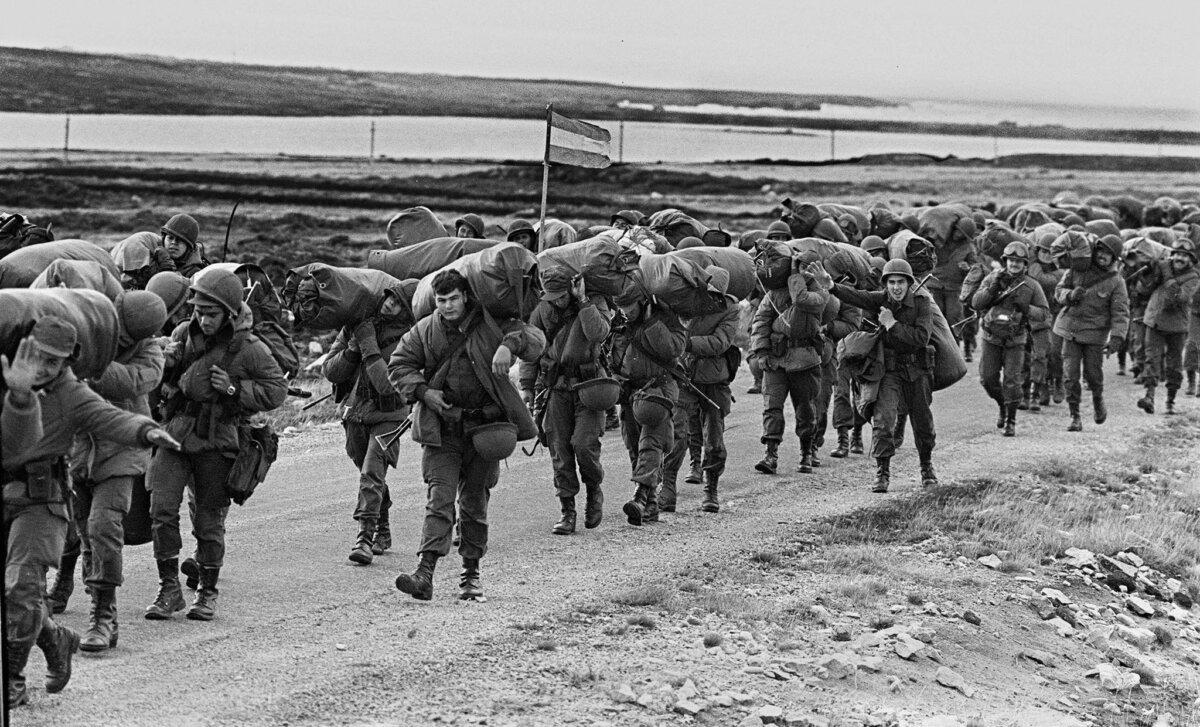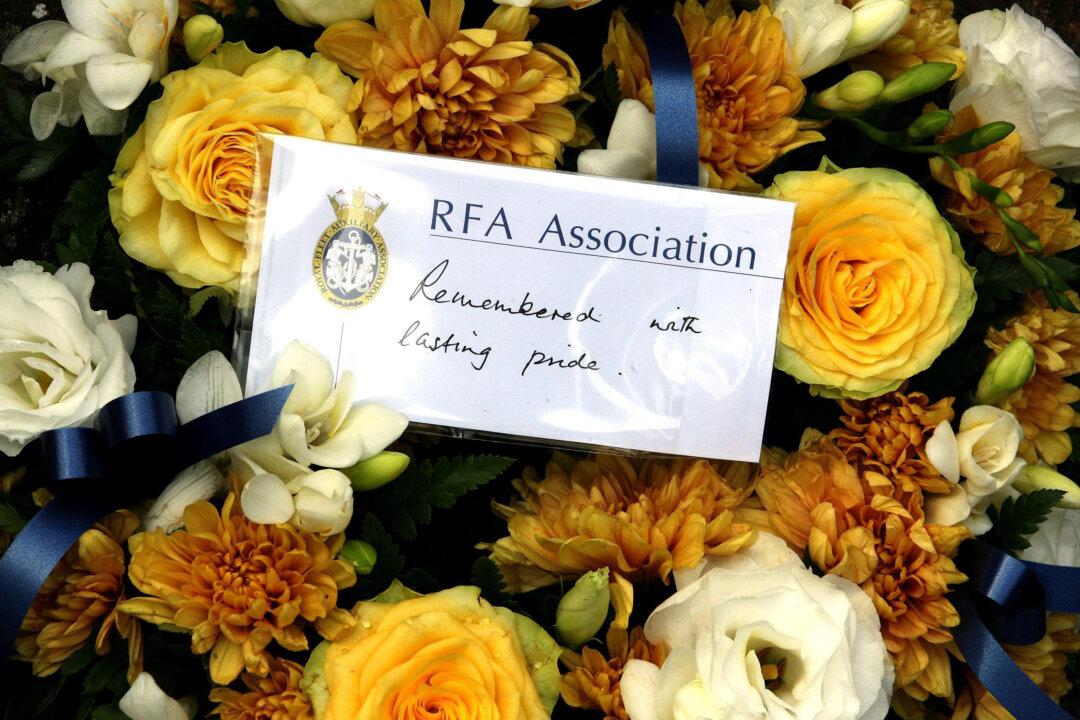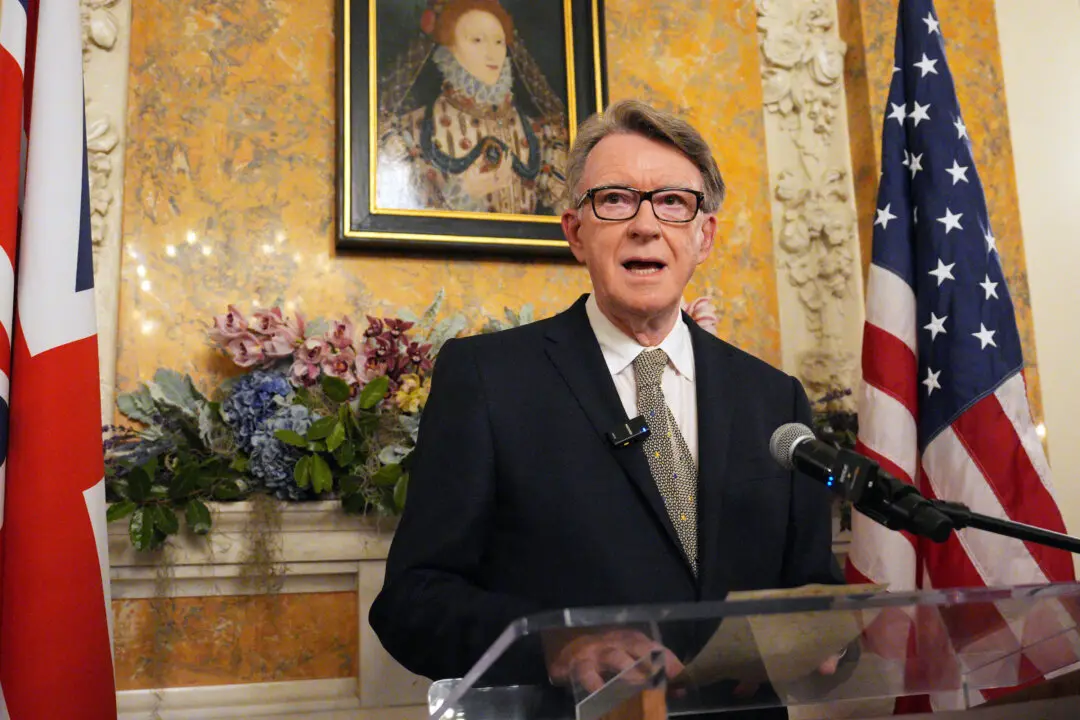An MP has said it is “mystifying” why files on the bombing of the Navy support ship Sir Galahad during the Falklands War have still not been released.
Defence minister Al Carns said the Ministry of Defence (MoD) position was that the losses that occurred on the vessel during the war between the UK and Argentina were “the result of enemy action and enemy action alone,” as MPs from across the House of Commons pushed the Government for transparency.
Senior Conservative MP Sir Bernard Jenkin was among those to raise concerns, telling Parliament it is “mystifying” that documents relating to the attack have still not been released 42 years after the event.
The Sir Galahad, a Royal Fleet Auxiliary (RFA) ship, was attacked by the Argentinian air force on June 8 1982, leaving 48 crew members dead and many more injured. The sinking of the ship was a significant blow to the British forces.
Welsh Guards
Survivors have long campaigned for the release of further documents from a private inquiry into the bombing, which they believe would exonerate the Welsh Guards.During defence questions in the Commons on Monday, Carns told MPs: “I’d like to reiterate that the service and sacrifice made by those on board Sir Galahad will never be forgotten.
“After any incident which results in the loss of life, people always ask themselves, what if something different had happened? However, the losses on Sir Galahad were the result of enemy action and enemy action alone.
“Under the Public Records Act, we protect personal data and information, but we’ve recently reviewed further files.”
Labour MP for Newport East in South Wales Jessica Morden said: “Falklands veterans from the Welsh Guard continue to campaign to uncover the truth behind the attack on the Sir Galahad in June 1982.
“I know the minister is already working on this issue, but with time marching on, will you agree to meet with me but also with other colleagues, and, crucially, veterans from the campaign to discuss releasing the remaining documents from the board of inquiries so that those veterans and the families of those who died can finally get to the truth?”
Jenkin, the MP for Harwich and North Essex, said: “This is 40 years on from this conflict, and it’s not about finding blame or who was responsible, in my view, it’s about making sure that lessons are transparently learned for future operations, about command chains and about accountability during a conflict.
‘Incompetence’
Carns expressed his “compassion with those either injured or wounded in combat,“ adding his assurance that “lessons learned from the conflict have been spread throughout the department.”He added: “There are five files of 308 witness statements (which) remain closed, and under the terms of the Public Records Act, the witness statement will remain closed until 2065. However, we look at reviewing some of those statements and providing a view on them in due course.”
Former Conservative leader Sir Iain Duncan Smith said the death toll in the attack was a result of “incompetence” from leadership.
He said: “I had many friends who served out there, and the after-effects of that disaster, death, burned human beings still alive today, resonates and bangs on at them, and all they want is to know why they were there at the wrong time, who gave the orders—that report is critical.
“It’s not a case of they were damaged or killed by enemy action. It’s also about the incompetence of those who put them there in the wrong place at the wrong time, that laid them open to that simple, terrible attack.”
Carns replied: “As (Duncan Smith) will know, there is much chaos in conflict, and the (Ministry of Defence) in no way blames the Welsh Guards for the events of that tragic day.
“My officials have been reviewing further files, and two extracts of the board of inquiry were reviewed and are now within the open records of the National Archives.”

Territorial Dispute Ongoing
The 74-day conflict began on 2. April 1982, during the premiership of Margaret Thatcher, when Argentina invaded and occupied the islands.In total, 649 Argentine and 255 British military personnel, were killed during the hostilities, as well as three civilians.
Argentina maintains that the islands are its territory, although they have been a British Crown colony since 1841 and Falkland Islanders strongly favour UK sovereignty, being of predominantly British descent.
Fears were raised for the future of the Falklands after the UK recently gave up control of another of its overseas territories, the Chagos Islands, to Mauritius, and Argentina vowed to gain “full sovereignty” of the disputed South Atlantic territory.
But Falklands governor Alison Blake sought to reassure residents that the UK’s commitment to the territory was “unwavering” and the historical context was different to that of the Chagos Islands.







